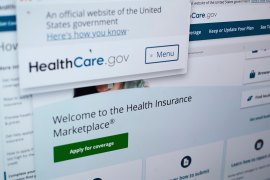Latest KFF Health News Stories
The Federal Government Should Have Limited, But Crucial, Role In Comp Effectiveness
The government shoudn’t be the arbiter that makes final decisions on the value of one treatment over another, but can play an important role in collecting and disseminating information about the most effective treatments.
Health Reform: The Reality Show
The health care reform discussion is beginning-at last!-to get real. On June 9, the Senate Health, Education, Labor, and Pensions Committee released a draft bill, and the Congressional Budget Office published an estimate that the bill would cost $1 trillion over 10 years and leave 35 million uninsured.
Health Reform Debate Highlights Budget Agency’s Critical Role
The Congressional Budget Office took center stage this week when its assessment of a health overhaul plan fueled criticism of its cost. Little known outside of Washington, the CBO is an arbiter of the cost and impact of legislation — meaning it will continue to play a critical role in the health reform debate. Senate Finance Committee Democrats, meanwhile, vow to re-tool their as-yet-unreleased proposal to make it less costly.
Former Senators Unveil Bipartisan Health Proposal, Would Tax Benefits, Mandate Coverage
Three former Senate leaders unveiled a bipartisan health care reform package Wednesday that includes individual and employer mandates, as well as a tax on health benefits.
Kennedy Absent As His Health Bill Launches
Sen. Edward Kennedy’s Health, Education, Labor, and Pensions Committee on Wednesday becomes the first panel in Congress to formally start work on a bill to overhaul the nation’s health system. But Kennedy, still undergoing treatment for brain cancer, won’t be there in person to drop the gavel.
Republicans Cite New Analysis In Attacking Senate Health Reform Bill
A new analysis of a major Senate health reform bill reports it would cost the government $1 trillion but reduce the number of uninsured by a net of only 16 million. The estimates by the Congressional Budget Office provided Republican critics with fresh ammunition on a day when President Obama was defending his plan before a national audience of doctors.
MedPAC: Medicare Must Reinvent Its Payment Sytems to Improve Quality, Save Money
A low-profile commission that advises Congress on Medicare recommends, as it has in the past, that the way health providers are paid be revamped. Congress is showing interest in the issue as it grapples with broader health reform.
President Barack Obama urged doctors to support a health care overhaul when he spoke to the annual meeting of the American Medical Association today in Chicago. Video courtesy of C-SPAN.
Transcript: President Obama Speaks To The American Medical Association
President Barack Obama today addressed the annual meeting of the American Medical Association. He discussed the future of the health care system and asked for their help with health reform.
Everybody’s Business: Reform Would Help Corporations
One of the more promising signs for health care reform over the past two years has been the apparent support of the business community.
Small Businesses Want Relief From High Health Costs–But Differ On How To Get It
Small companies, who traditionally have been wary of government action on health care, are more receptive than in the past to legislation that would make changes in health care. But they still have fundamental disagreements over how aggressive the government should be in imposing new rules and revamping the system.
A Group of Health CEOs Wants To End Medicare Fee-For-Service Payments
Some CEOs of America’s largest health care providers called Friday for an end to fee-for-service payments under Medicare and incentives to create administrative efficiencies to lower costs to help pay for America’s try at health care reform.
FSAs Could End Up On Chopping Block In Hunt For Health Overhaul Money
As Congress searches for funds to pay for health legislation, flexible spending accounts, which allow consumers to use pre-tax dollars to pay for medical bills, emerge as a possible source. The result is a renewed debate over whether the accounts are a legitimate way to help people cover costs or are a tax shelter for the affluent.
Democrats Target A Dozen GOP Senators In Quest For Health Reform Deal
Senate Finance Committee Chairman Max Baucus, D-Mont., and other Democrats are pursuing a dozen GOP senators they think may vote for a health reform deal. To round up as many as 70 votes for a bipartisan majority, Baucus signaled a willingness to compromise on a key feature sought by President Obama and other Democrats: a government-run insurance plan as consumer option.
Use Medicare To Hold Industry To Cost And Quality Promises
Affordable health care for everyone is too important for policy makers to sit back and wait for the health care industry to cut costs and improve quality. The industry needs a push, in the form of a little financial pressure. Medicare is the mechanism through which the federal government has leverage to increase the pace of change in the U.S. health care system.
Solving the Political Paradox of Health Care Reform
After decades of effort, the enactment of universal health insurance coverage is actually in sight.
Labor Leaders Wary As Democratic Allies Weigh Health Reform Proposals
Labor leaders are worried as congressional Democrats weigh various health care overhaul proposals. Unions oppose taxation of employee benefits and want a strong public insurance plan to compete with private insurers, but some Democrats say they’re open to compromises on both issues to attract Republicans and fiscal conservatives in their own party. Unions have pledged to spend $80 million in their campaign to influence legislation.
Minority Women More Likely Than White Women To Have Major Health Problems
Women of color in America are 11 times more likely than their white counterparts to contract AIDS, according to a study released Wednesday by the Kaiser Family Foundation.
President Courts Fiscal Conservatives In Reform Push
President Obama is promising fiscal conservatives in Congress that health reform won’t be financed by deficit spending. He needs the support of moderate and conservative Democrats who are wary of a vast expansion of government-underwritten health care. Strict new budget rules may help persuade skeptics that a health care system overhaul is affordable.
New Yorker Article Sparks Strong Reaction
Surgeon and author Atul Gawande’s recent article in The New Yorker is generating intense discussion about the cost of medicine and exerting a powerful influence over the health reform debate.










